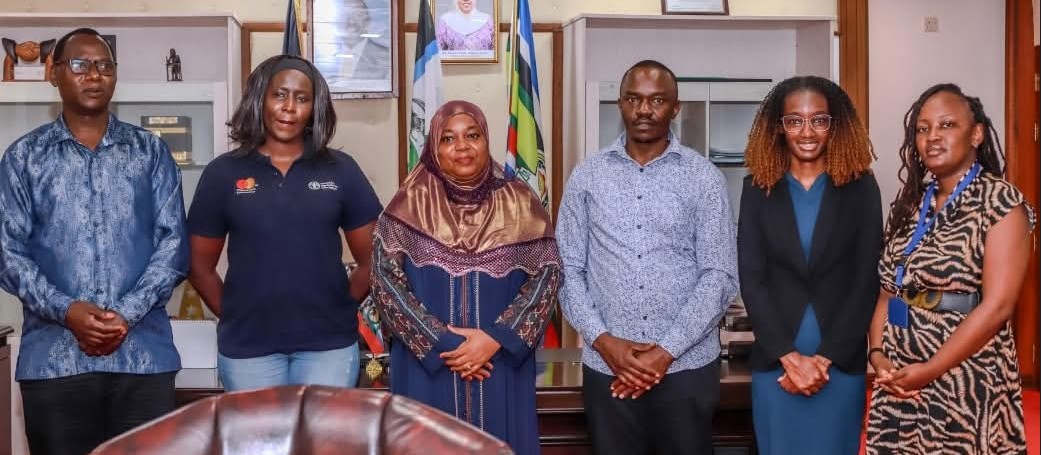State allocates Sh700 million to roll out mandatory e-procurement system from July 2025

To prepare for the rollout, the National Treasury has been conducting training sessions for end-users and suppliers.
The government will spend Sh700 million in the 2025/26 financial year to fully operationalise an electronic procurement system that will tighten oversight, improve transparency, and curb wasteful spending across public institutions.
Treasury Cabinet Secretary John Mbadi has revealed that 400 end-users, including staff from national and county governments, have undergone training to support the shift to digital procurement.
More To Read
- Controller of Budget urges faster adoption of e-GPS for public projects
- Kenya Power awards Sh3.5 billion in tenders to youth, women and PWDs
- Cabinet backs data-driven plan to tame infrastructure overpricing
- PS Belio Kipsang urges use of e-Citizen, warns against cash payments
- MPs call for withdrawal of Treasury, civil service circulars on e-GPS system
- Mbadi confirms Treasury deliberately influencing shilling’s value against dollar
“The government is committed to enhancing transparency, accountability, and efficiency in public procurement. I have in this regard proposed an allocation of Sh700 million for rolling out the implementation of the electronic government procurement (e-GP) system,” Mbadi said while presenting the 2025/26 budget in Parliament on Thursday.
The system, officially launched in April 2025, will be mandatory for all procurement activities by Ministries, Departments, and Agencies (MDAs) starting July 1, 2025.
“In order to improve governance in the public procurement process, I launched the e-procurement system in April 2025 and beginning 1st July 2025, all procurement by Ministries, Departments and Agencies will be done through the e-procurement system,” the Treasury CS said.
Reduce opacity
He noted that the new digital approach will reduce opacity in procurement procedures and could save the government an estimated 10 per cent of the total value of procureable budgets.
To prepare for the rollout, the National Treasury has been conducting training sessions for end-users and suppliers.
“The rollout of the e-procurement system is scheduled for July 2025. In order to ensure effective use of the system, the National Treasury rolled out the training of end-users from procuring entities in both the National and County Governments on the e-Government procurement system Phase I modules that cover procurement planning to contract management,” he said.
“We have since trained suppliers, and to date, 400 e-Government procurement system end-users comprising Public Finance Management staff and suppliers from both the National and County Governments have been trained in readiness for full rollout in July 2025.”
Automate public procurement
The e-GP system is part of a broader reform agenda to automate public procurement and asset disposal processes.
The digital shift is expected to enhance participation by bidders, speed up procurement approvals, and ensure the authenticity of documents through integration with other government systems.
“The e-government procurement system is a departure from the manual processes and will lead to increased bidder participation, enhanced efficiency in processing of procurement requests, and increased authenticity of procurement documents through integration with various government systems,” he told Parliament.
In addition, Mbadi urged legislators to expedite the approval of the Public Procurement and Asset Disposal (Amendment) Bill, 2024, which is currently before the House.
The Bill aims to entrench transparency, strengthen the procurement regulator’s enforcement powers, promote local content, and align Kenya’s procurement framework with global standards.
“The Bill seeks to enhance transparency and accountability; strengthen the role of the Regulator to enforce standards, compliance and sanctions for non-compliant procuring entities; promote the use of local content; and align with international best practices. I urge the Honourable Members to fast-track its enactment,” he said.
The e-procurement initiative is among several measures the Treasury is implementing to enhance the efficiency and effectiveness of public spending.
“In our continued effort to ensure prudent fiscal management, the Government will sustain and deepen measures aimed at strengthening expenditure control and enhancing the efficiency and effectiveness of public spending,” Mbadi said.
Other key measures include rolling out a human resource management system to manage the wage bill, expanding public-private partnerships, automating pension services, and reforming state corporations to improve efficiency and accountability.
Top Stories Today












































